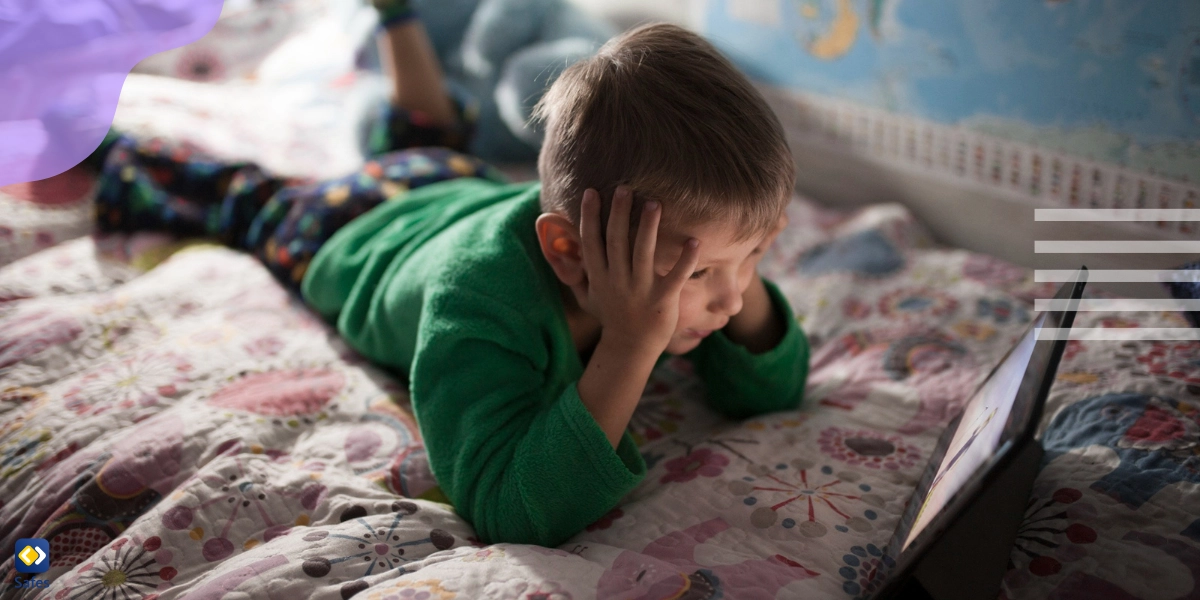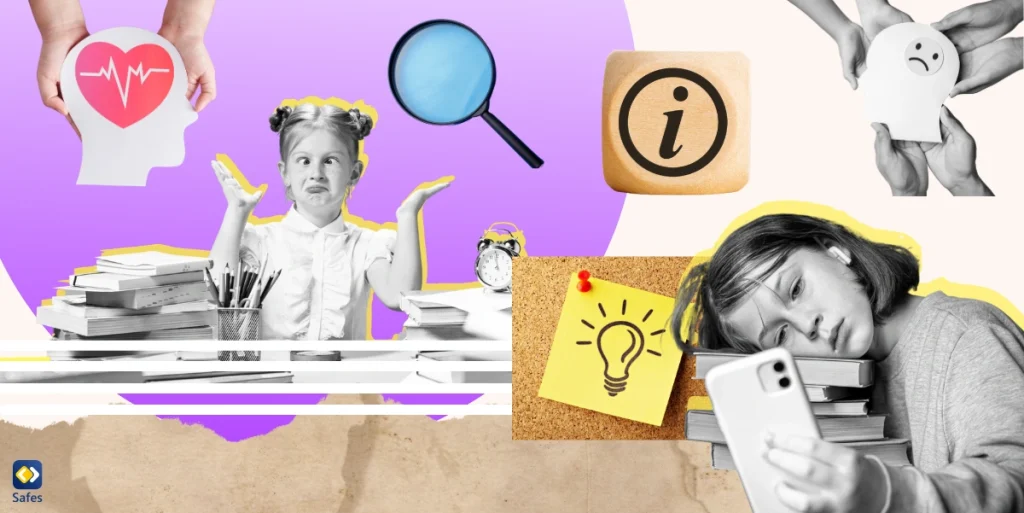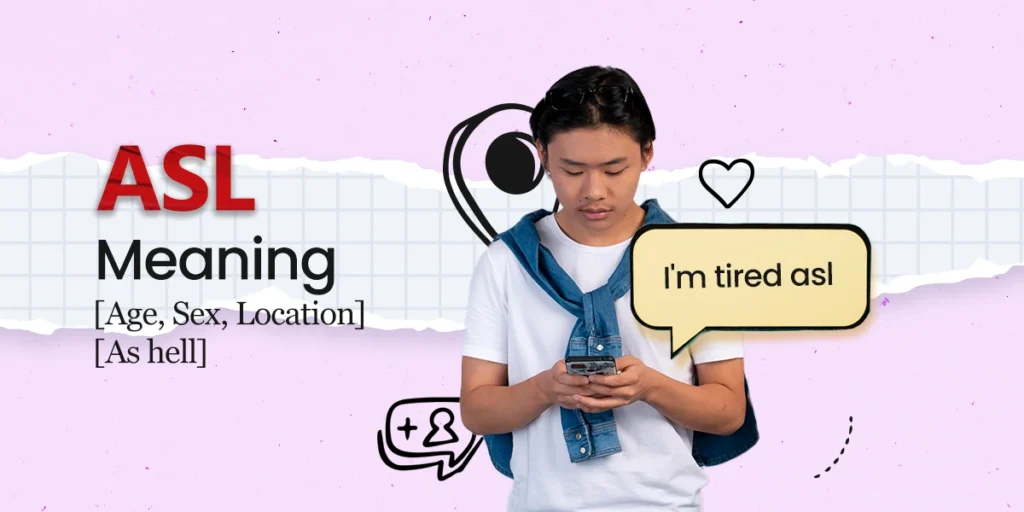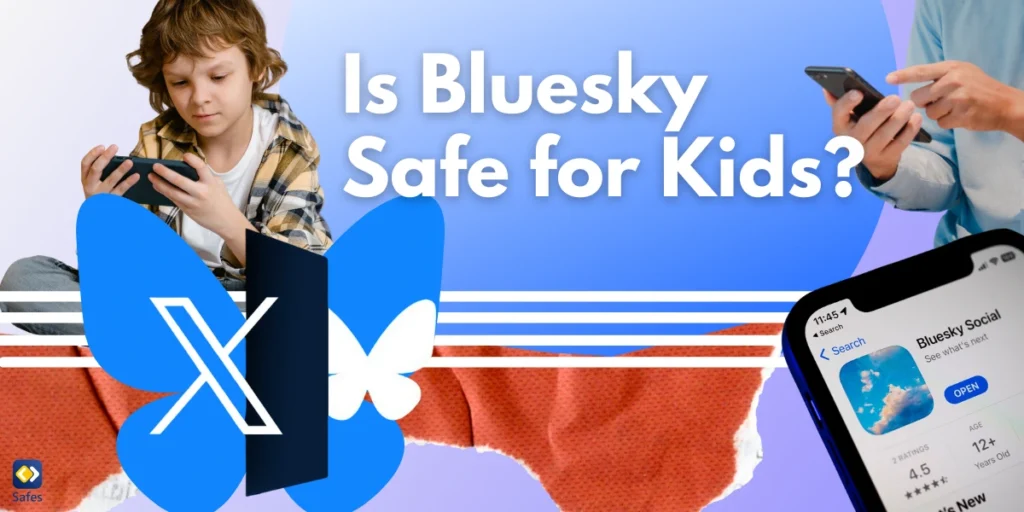The continual flow of information from numerous sources has become a crucial aspect of our lives in the current digital age. Information overload is a negative aspect of easy access to information that frequently goes unrecognized despite the advantages. Children may experience substantial repercussions from this phenomenon, which is defined by an excessive volume of information being bombarded at us. For parents to support their children’s healthy development in this information-rich period, it is essential to understand information overload, its effects on children, and how to treat it.
Download and Start Your Free Trial of the Safes Parental Control App
Information Overload Definition
When people are exposed to more information than they can properly absorb and understand, information overload develops. Kids nowadays are exposed to an incredible quantity of information at an early age because of the development of smartphones, social media, and the internet.
Information overload encompasses entertainment, news, ads, and other materials in addition to instructional materials. The continual barrage of information can impair decision-making, cause cognitive fatigue, and shorten attention spans; all of which are information overload symptoms.

Why Is Information Overload a Problem?
Information overload is a problem for children and parents because of these four reasons:
- Cognitive Overwhelm: Children’s developing minds are more susceptible to cognitive overload. The excess information can lead to difficulties in focusing, retaining information, and critically thinking about what they’re exposed to.
- Emotional Well-being: A study published in Frontiers in Psychology found that information overload has a significant positive impact on digital distrust and negative emotion Information overload can expose children to distressing news, unrealistic body standards, and cyberbullying. This can negatively impact their self-esteem, increase anxiety, and lead to feelings of inadequacy.
- Distorted Worldview: Exposure to biased or sensationalized content can shape children’s perceptions of the world in inaccurate ways. This can hinder their ability to form well-rounded opinions and engage in meaningful conversations.
- Sleep Disruption: Excessive screen time and exposure to stimulating content, especially before bedtime, can disrupt sleep patterns. Sleep deprivation leads to fatigue and reduced academic performance.
Examples of Information Overload
Here are some information overload examples in various contexts:
- Social Media Feed: Imagine scrolling through your social media feed where countless posts, articles, and videos vie for your attention. The sheer volume of content can make it difficult to focus on any one thing or even remember what you’ve seen.
- Online Shopping: While online shopping offers convenience, being presented with an array of choices, reviews, and deals can lead to decision fatigue, making it hard to make a confident purchase.
- Media Consumption: Binge-watching TV shows, movies, or video streaming platforms for extended periods can flood your mind with excessive visuals, plots, and characters, making it hard to keep track of what you’ve watched.
- Health Information: Searching online for health-related symptoms or conditions can lead to overwhelming anxiety due to the vast amount of medical information, some of which might be conflicting or overly alarming.
How to Deal With Information Overload
Parents can help their children avoid information overload effectively if they use the right methods. Here are a few suggestions you can use to help your child’s information overload.
- Open Communication: Foster an open and non-judgmental environment where your child feels comfortable discussing their online experiences. Encourage them to share what they encounter and address any concerns they might have.
- Set Screen Time Limits: Establish clear boundaries for screen time. Allocate time for educational, recreational, and social activities, ensuring a balanced online-offline lifestyle.
- Teach Digital Literacy: Equip your child with the skills to critically evaluate information sources, identify fake news, and understand the potential biases present in media. This way they’ll be able to deal with the problem of information overload from internet media sources by being digitally literate.
- Encourage Offline Activities: Promote hobbies and activities that don’t involve screens. Engaging in sports, arts, and spending time with family and friends can provide a healthy break from the online world.

Parental Control Apps Can Help with Information Overload
Default parental controls on operating systems such as Windows parental controls or third-party parental control apps like Safes, available on multiple platforms such as iOS and Android, have tools to deal with information overload. Here’s how Safes can assist in mitigating the effects of information overload:
Content Filtering: Parental controls allow parents to filter and block specific types of content that can make sure their children aren’t overloaded with information. For example, Safes allows parents to filter keywords from children’s web searches or even block entire URLs and web domains on browsers.
Time Management: Parental control apps like Safes can help you manage your child’s schedule. For example, you can limit their screen time or set schedules for app usage to help them with their time management.
Distraction Minimization: Parental controls help minimize the distraction that children must deal with, in turn decreasing the information they encounter. So parental control apps can aid in preventing information overload.
Curious to see how Safes can help manage your child’s online experience? Sign up for a free trial today and start protecting them from digital overload.
Conclusion
Helping kids deal with information overload is a job that parents shouldn’t take lightly in a world where knowledge is readily available at our fingertips. Parents may provide their children with a secure and well-balanced online environment by being aware of the possible threats, encouraging open communication, and utilizing suitable tools like parental control applications. Giving children the tools to handle information overload will not only encourage healthy growth but also get them ready to be thoughtful and accountable online citizens.
Your Child’s Online Safety Starts Here
Every parent today needs a solution to manage screen time and keep their child safe online.
Without the right tools, digital risks and excessive screen time can impact children's well-being. Safes helps parents set healthy boundaries, monitor activity, and protect kids from online dangers—all with an easy-to-use app.
Take control of your child’s digital world. Learn more about Safes or download the app to start your free trial today!




